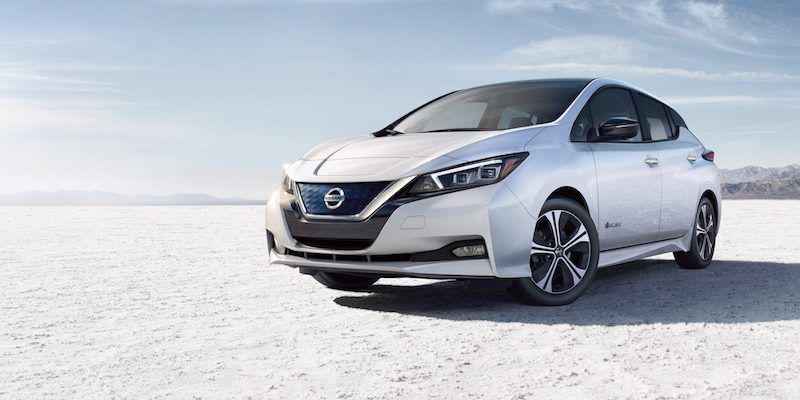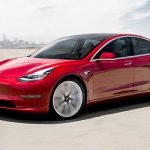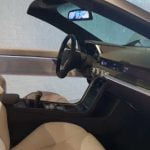
As the largest automotive market in the world, China is dictating a lot of the moves automakers are making. The massive country is currently in the midst of attempting to clean its air in a radical way, eliminating the sale of cars with internal combustion engines by 2040. It’s a drastic move that’s sent every automaker scrambling to have well-defined lineups of hybrid and electric vehicles.
While that’s still some time away, China has confirmed its decision by claiming that it wants one out of every five vehicles on the road to be battery powered by 2025. When it comes to emissions regulations, China’s not messing around. And that’s causing automakers to rethink their strategy and look toward China as a place to build their own EVs.
China isn’t alone in its decision to move away from gas-powered cars. Japan’s government has also come out with a similar endeavor, stating that it wants automakers to stop building gas-and diesel-powered vehicles by 2050. While that’s sure to have a good effect on the environment, it’s going to be a nightmare for the country’s automotive industry, which is Japan’s number one industry.
In a lengthy report, Bloomberg Businessweek outlines why moving to electric vehicles will be bad for Japan.

How Moving To EVs Could Be Bad For Japan
Tesuya Kimura runs a company that manufacturers engine components for various companies, including Toyota. Not too long ago, Kimura had to cut costs to stay competitive in the difficult segment, which was followed by a warning from Akio Toyoda, Toyota Motor Corp.’s president, that a “once-in-a-century” upheaval was about to threaten the automotive industry’s survival, claims the outlet. What Toyoda is referring to, is the rise of EVs, autonomous vehicles, and ride-sharing platforms.
All of these industries are putting traditional companies that build combustion engines and components that go into traditional vehicles at risk. According to Bloomberg, electric cars use approximately 33 percent less parts than vehicles with a traditional combustion engine. We’ve touched on this topic before, stating that it’s one of the reasons why vehicles like the Chevrolet Bolt require little to no maintenance. Without a combustion engine, you don’t have to worry about spark plugs, fuel pumps, pistons, camshafts, and more claims the outlet. While that’s good for the earth and consumers, it’s not good for Japan’s industry.
“It takes out whole geographical areas,” Rob Carnell, chief Asia-Pacific economist at ING Bank NV in Singapore, told the outlet. “The hairdressers and the local mom and pop shops, and all of the business where the autoworkers would have spent money – they all get hit, too.”
While the threat exists, it’s one that will take time to come to fruition. At the moment, electric vehicles don’t account for a lot of global sales. Sure, electric cars are coming off of their record year in terms of sales, as the International Energy Agency claims that the total number of EVs and plug-in hybrids exceeded 3 million last year in its yearly report on EVs, but the outlet claims that electric vehicles only accounted for 1 percent of total global car sales.
Toyota is also a unique case, as it was one of the first to come out with a mass-produced hybrid with the Toyota Prius. The vehicle showed Toyota that it can combine a combustion engine with an electric motor to make something that’s efficient. Since the first Prius came out, Toyota has finessed the vehicle, making it more efficient than ever, while staying away from a fully-electric offering. That means that Kimura still has some time before the shift.
While Toyota’s late to the party, the Japanese automaker has plans to introduce 10 electric vehicles in the early parts of 2020. Eventually, the automaker hopes to sell 5 million electric and hybrid vehicles every year by 2030. Bloomberg also states that Toyota is developing a solid-state battery to underpin a large amount of its electric cars. Major suppliers like Denso Corp. and Aishin Seiki Co., which are both part-owned by Toyota, are investing large sums of money to keep up with the high levels of development.
“As with all technological change, there’s winners and losers,” Janet Lewis, an industry analyst in Tokyo, told Bloomberg. “You’ll have some suppliers that are able to develop some of the key components, but if you’re making mufflers you may not be one of the winners.”

What Other Companies Could Suffer
One of the reasons why Kimura’s company will be hit hard by the switch is because the company has been doing the same things for a number of years. As Bloomberg reports, the company is using machinery that was purchased originally in 1971 and continues to make engine and transmission components, which it has been doing for decades.
“If you just covered over the computers, you’d think this was the Showa era,” Kimura told the outlet, referring to Emperor Hirohito’s reign, which ended in 1989.
Engine manufacturers aren’t the only companies that will struggle, as Bloomberg points toward Jtekt Copr., which is a manufacturer that specializes in power-steering and drive shaft components. President Tetsuo Agata is at the help of Jtekt Corp. and he’s uneasy, as well. “We don’t know how we’re going to deal with the new kinds of demand,” Agata said in an interview in January. “Everyone is worried.”
The outlet states that no one has come out with a study that reveals just how precarious the situation will be in Japan, but the Fraunhofer Institute for Industrial Engineering did a recent analysis that revealed the switch to EVs wouldn’t bode well for Germany. According to the institute’s analysis, if 25 percent of vehicles were powered by electricity in Germany, the country would lose 9 percent of its automotive jobs. For those that are asking about the jobs that EVs would create, the study accounts for those.
[“Source-gadgets.ndtv”]





